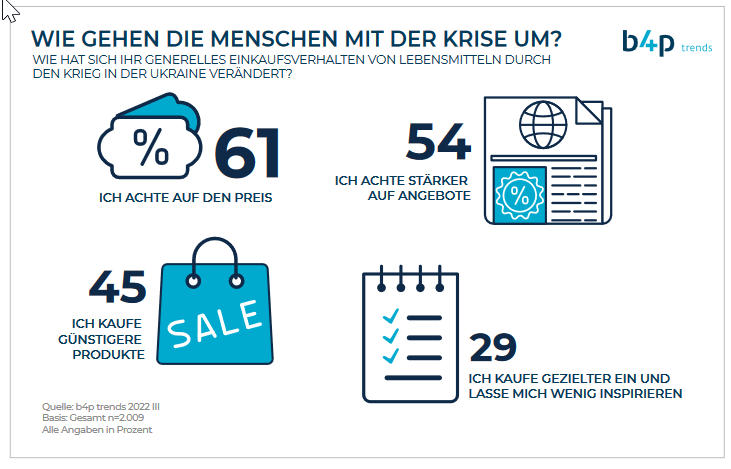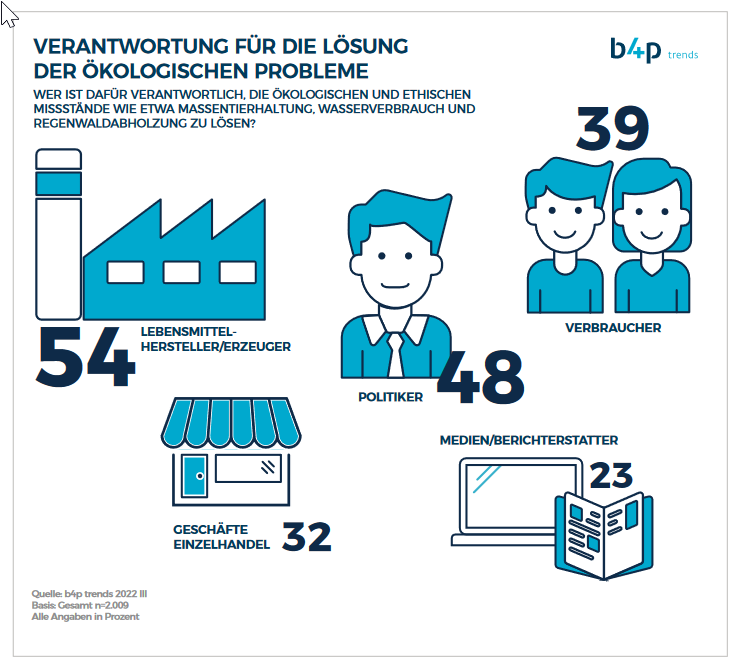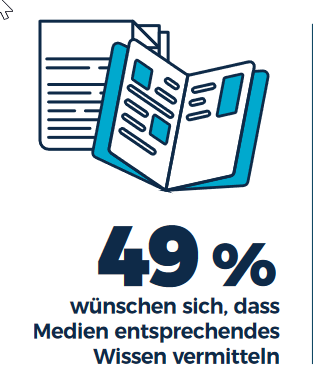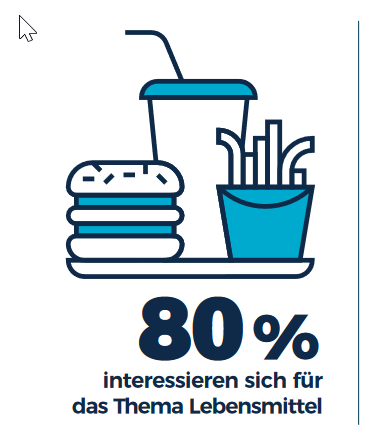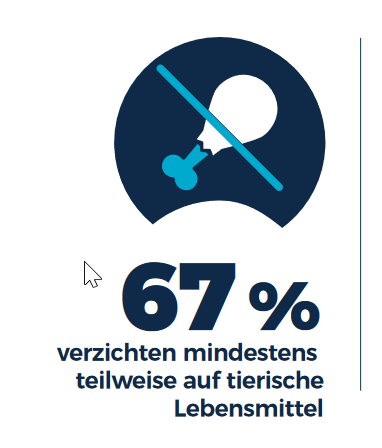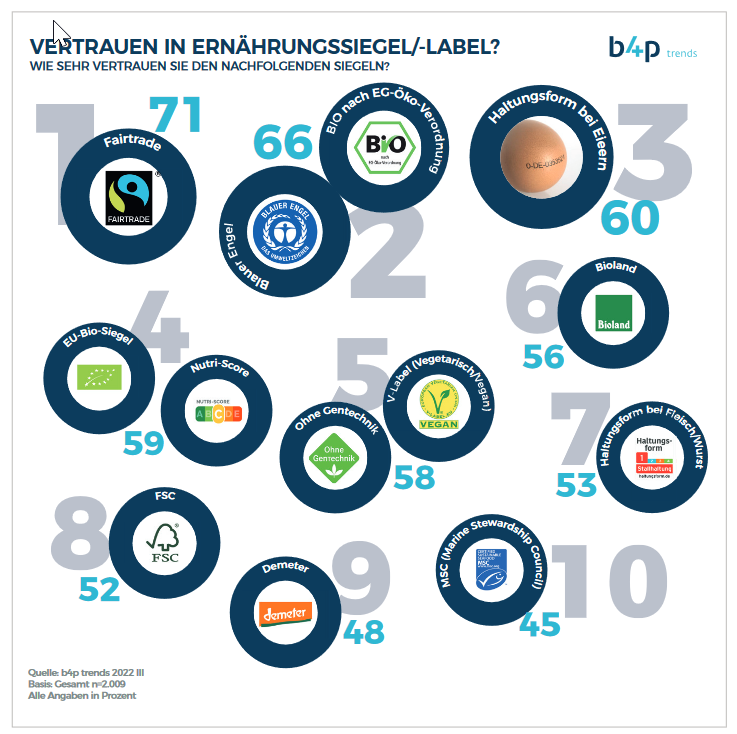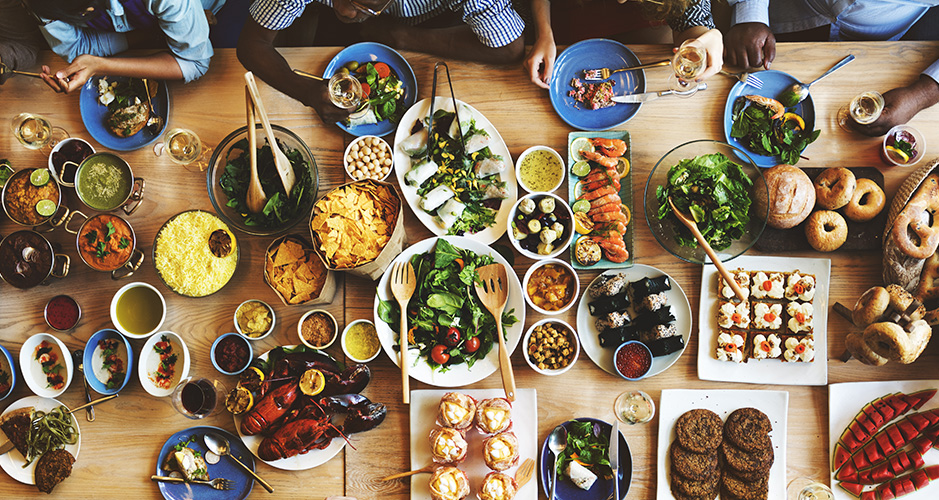
The food industry is booming. There are a number of reasons for this, including the growing population and the increased demands from consumers. But one of the biggest reasons is the increased global demand for animal products. The discussions surrounding the ecological and ethical concerns about food products such as meat, eggs and milk are growing, as the livestock farming required to produce them is one of the largest sources of greenhouse gases and has an enormous impact on the environment. The new trend report published by the Gesellschaft für integrierte Kommunikationsforschung (Society for Integrated Communication Research, or GIK) provides revealing insights and answers on how important the topic of food is to Germans and how concerned they are as consumers with the structural problems of the food industry. The results of the study allow advertisers to gain a better understanding of the target groups so they can tailor their advertisements to them with greater precision.
People up and down the country are thinking about what they eat
Germany is changing its eating habits – regionality, sustainability and above all the trend towards flexitarian, vegetarian and vegan diets are the forces driving the food industry. This is also reflected in the GIK trend report. The vast majority of Germans (80 per cent) are (very) interested in the topic of food. The recently published Food Industry Report clearly shows that more and more Germans enjoy cooking for themselves or with friends and have fun trying out new dishes compared to 2019. The amount of interest in the topic among the younger target group of 16 to 29-year-olds is even more noticeable (86 per cent). The topic of ‘food and drink’ is also a popular favourite among influencers at the moment.
The vast majority of respondents are not only interested in food, but are particularly worried about ecological and ethical concerns, some of which are associated with conventional food production. A staggering 78 per cent believe that the population is not sufficiently aware of these concerns.
Many avoid eating animal products and meat
The increasing interest in food ensures people adopt balanced and healthy eating habits. A total of 68 per cent said that they pay attention to making sure they follow a healthy diet. Two-thirds of the respondents opt avoid eating animal products at least to a certain extent. Among the younger target group of 16 to 29-year-olds, this number rises to 81 per cent. One in four people now choose to avoid eating animal products, which shows there is clearly noticeable willingness among the population to contribute to effecting positive change. Respondents cite their own health and preventing animals from suffering as motivation for avoiding animal products.
Alternative food trends are on the rise
The general population is familiar with the terms vegetarian, vegan and flexitarian. Recently, however, more food trends have developed, such as zero waste, local food, urban farming and snackification. But the majority of respondents cannot relate to these terms – although subconsciously they may even be part of a food trend or movement. For example, only 21 per cent are familiar with the term ‘zero waste’, but 81 per cent try to create as little packaging waste as possible when they go shopping or they only buy unpackaged food. Looking towards the longer term, three major food trends are emerging. These are enjoyment and quality, sustainability and health-conscious eating. More and more people are looking for sustainable products when buying food and want to consciously follow a healthy diet. Good food and drink will play an even greater role in 2023.
Labels, brands and quality seals for food products
Labels and quality seals are becoming increasingly important as a way to reliably prove the origin of and methods used to produce food. People use these as a guide when deciding what to purchase. Just under half of the respondents (49 per cent) say they pay attention to labels and seals. The results of the study show that Fairtrade (71 per cent), Blue Angel (66 per cent) and the BIO EC Organic Regulation (66 per cent) are among the most trusted labels. It is striking people are paying more and more attention to the brand of a product when they are buying food.
Who should solve the problems? The role of the media
According to the survey results, food producers (54 per cent) and politicians (48 per cent) have a duty to take responsibility so that ecological problems can be tackled. Only 39 per cent of respondents see themselves as responsible. The respondents also consider the media to have a vital role and demand above all that it provide guidance and reliable information on the topic of food. Only 33 per cent believe that the media should take a firm stance itself. Fifty-nine per cent demand that only sustainable products are allowed to be advertised – in other words, advertising for non-sustainable food should basically be banned.
Special offers – an excellent opportunity for advertisers
The war in Ukraine and the resulting energy crisis have driven up prices massively and influenced the purchasing behaviour of Germans. For 61 per cent of respondents, the price of a product plays an important role, while another 54 per cent pay more attention to offers. This consumer behaviour provides an excellent opportunity to communicate offers with special offers and sales promotion measures.
Sustainable food will become even more important
Everything related to food will become even more important in the future. One in two respondents is already questioning their own consumer behaviour. In addition, 42 per cent also said they had made a lasting change in the way they approach food – with a further 33 per cent saying they can see themselves making this kind of change in the future. However, it is important to mention that this change relates to the way they approach food – primarily to consuming regional and seasonal produce and to focusing on less waste, home-grown produce and healthy ingredients. This is because limiting the actual consumption of certain foods seems to be an option for only one in three to one in four. For many, nutrition is more than just food.
